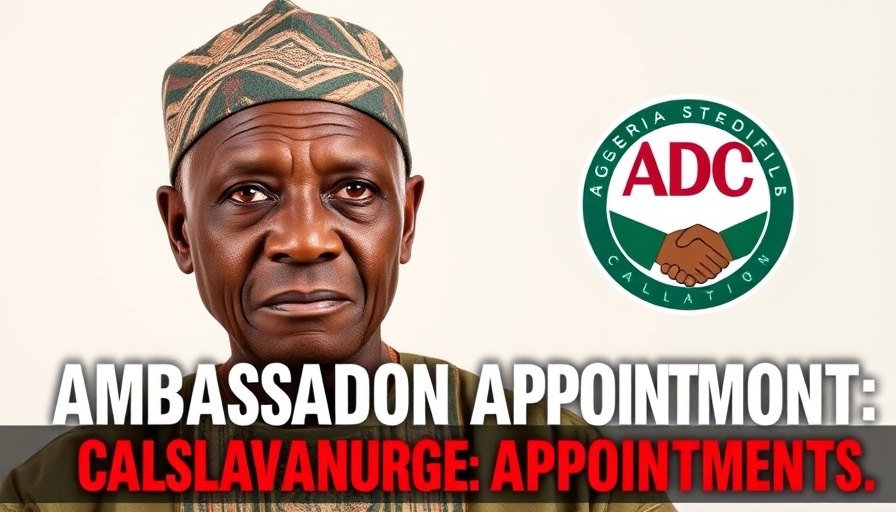
Super Falcons Push Boundaries, Embrace Joy in Historic WAFCON Semi-Final
In an electrifying display of skill and determination, Nigeria's Super Falcons triumphed over South Africa with a gripping stoppage-time goal, securing their place in the Women's African Cup of Nations (WAFCON) 2024 final. The victory was not just about football; it was a testament to resilience and national pride that resonated across Nigeria. Streets filled with jubilant supporters, eager to embrace the potential of 'Mission X'—the ode to their pursuit of a 10th continental title.
In Super Falcons Edge South Africa 2-1 with Stoppage-Time Winner to Reach WAFCON Final, the discussion dives into their remarkable journey, exploring key insights that sparked deeper analysis on our end.
Fan Emotions: When Victory Is More Than Just a Game
The atmosphere in Casablanca was charged with excitement. Nigerian supporters, clad in vibrant colors, flooded the stands. Their chants and cheers not only kept the players’ spirits high but also transformed the stadium into a fortress of encouragement. “Mission X is here!” echoed from the fans, encapsulating their unwavering belief in the team's journey toward glory. The emotions were mirrored not just on the pitch but throughout the Nigerian community, providing a sense of unity and shared hope.
‘The Emotion of the Game’: Players React to Victory Amidst Challenges
While the elation of victory prevailed, the match was not without its emotional struggles, particularly concerning player Gabriella Salgado's injury. The team expressed a balance of joy for their accomplishment and empathy toward their teammate. It highlighted a significant theme in sports: the dual nature of triumph paired with adversity. The Falcons' ability to overcome hardships on and off the field speaks volumes of their character and fortitude.
Coaching Triumphs: Justin Mugu's Leadership Shines
Justin Mugu stood at the center of pressure before this tournament, aiming to prove his capability as the head coach of the Super Falcons. His tactical decisions have increasingly earned him the trust of the fans. The effectiveness of his game management became evident in key moments during the match. Substitutions that brought fresh energy to the field effectively turned the tide in Nigeria’s favor. As the Super Falcons advance, calls for contract assurance from fans suggest a burgeoning faith in his leadership.
Future Showdowns: Opponents and Aspirations in the Final
The anticipation now shifts toward the final match, where Nigeria awaits the outcome between Morocco and Ghana. A longing for a rematch against Morocco, who previously halted Nigeria's advance in WAFCON 2022, fuels the emotional stakes. The desire for revenge and the craving for a competitive edge over Ghana, popularly dubbed the 'Jollof Derby,' can offer dynamic narratives in the championship, with fans rallying behind every perspective.
Celebrating Heroes: Recognizing Individual Contributions
Among the standout performers is Osinachi, whose last-minute saves reflected true grit under pressure. Even as mistakes occurred, the star’s recovery showcased resilience, and fans rewarded her effort with chants of admiration. This demonstrates an important aspect of sports—acknowledging heroes in the face of adversity, which can embolden not only individual players but the entire team.
Connecting Through Culture: The Broader Impact of Football on Community
Football, particularly in African contexts, goes beyond the pitch. It serves as a cultural bridge, fostering community spirit while tackling societal challenges. Celebrations of victories instill national pride and unity, turning individual successes into a collective identity. In Nigeria, the Super Falcons are more than just athletes; they are cultural icons, inspiring the next generation to pursue sporting excellence while reinforcing the importance of teamwork, dedication, and national pride.
Conclusion: The Promise of New Beginnings
As Nigeria’s Super Falcons gear up for the WAFCON final, their journey continues to resonate profoundly within and outside the country. This tournament is not merely a quest for a championship but a powerful narrative of resilience, empowerment, and the potential to inspire countless hearts. The upcoming match is a chance to witness the surge of national pride and solidarity, proving that in the world of sports, victories manifest far beyond the scoreboard.
 Add Row
Add Row  Add
Add 


Write A Comment